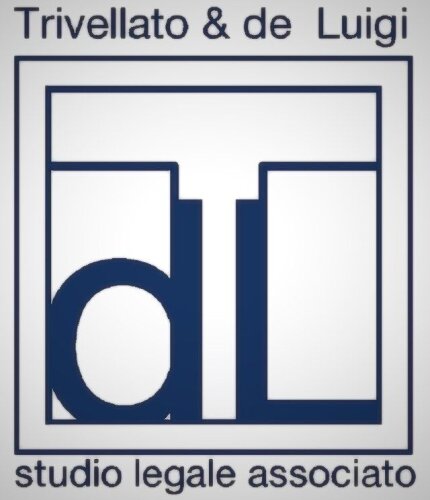Best ADR Mediation & Arbitration Lawyers in Venice
Share your needs with us, get contacted by law firms.
Free. Takes 2 min.
List of the best lawyers in Venice, Italy
About ADR Mediation & Arbitration Law in Venice, Italy
Alternative Dispute Resolution (ADR), which includes both mediation and arbitration, offers parties in Venice, Italy, a way to resolve disputes without going through traditional court litigation. ADR aims to provide faster, more cost-effective, and collaborative solutions to various civil, commercial, and even some employment or family law disputes. In Italy, ADR is encouraged both by Italian law and European Union directives, and Venice, as part of the Veneto region, benefits from a well-established network of mediators and arbitral bodies operating under national and European standards.
Why You May Need a Lawyer
There are several reasons you may need legal assistance in ADR mediation and arbitration in Venice:
- You are involved in a commercial contract dispute and want to avoid lengthy litigation.
- You are required by an existing contract to use arbitration or mediation to settle disagreements.
- You are dealing with sensitive family matters where private resolution is preferable.
- You need professional guidance to understand your rights and obligations during mediation or arbitration.
- You want to ensure that any agreements resulting from ADR are enforceable and legally sound.
- A court has ordered or suggested mediation/arbitration as a mandatory step before litigation may proceed.
- You need assistance with drafting or reviewing mediation or arbitration clauses in contracts.
Local Laws Overview
Italian law has integrated ADR processes as part of the broader justice system. Key aspects include:
- Legislative Decree 28/2010: Governs mediation in civil and commercial matters. In some cases (e.g., real estate, inheritance, medical malpractice), mediation is a mandatory preliminary step before court proceedings.
- Italian Code of Civil Procedure: Articles relating to arbitration set out the procedures, appointment of arbitrators, and recognition/enforcement of awards.
- Recognition of Foreign Awards: Italy adheres to the New York Convention, facilitating the recognition and enforcement of international arbitration awards.
- Local Mediation and Arbitration Bodies: Venice hosts registered organizations and chambers capable of handling ADR, including the Venice Chamber of Arbitration.
- Confidentiality and Impartiality: These are fundamental principles in ADR proceedings according to Italian law.
Frequently Asked Questions
What is the difference between mediation and arbitration?
Mediation involves a neutral third party helping disputants reach a voluntary agreement. Arbitration is more formal; an arbitrator hears evidence and makes a binding decision.
Is ADR mandatory in Venice, Italy?
For certain types of civil and commercial disputes, mediation is legally required before you can file a lawsuit. Arbitration may be required if your contract specifies it.
How long does the ADR process take?
Mediation typically takes a few weeks to a few months, much faster than court. Arbitration can vary in length depending on the complexity of the dispute but is usually faster than litigation.
Are ADR outcomes legally binding?
A mediation agreement is binding if both parties sign it. An arbitration decision (award) is binding and enforceable like a court judgment.
Do I need a lawyer during ADR?
While it’s not mandatory, having a lawyer ensures that your rights are protected, and helps with the negotiation, drafting of agreements, and understanding of Italian law.
What happens if the other party refuses mediation?
If mediation is mandatory and the other party refuses to participate, it may negatively affect them in subsequent court proceedings, and in some cases, legal action may not proceed without a mediation attempt.
Can ADR be used for family law disputes in Venice?
Yes, mediation is increasingly used for family law issues, such as separation, child custody, and inheritance disputes, as promoted by both Italian and regional policies.
Are ADR proceedings confidential in Italy?
Yes, confidentiality is a cornerstone of both mediation and arbitration under Italian law. Information disclosed cannot be used later in court, except for enforcement.
How are mediators and arbitrators chosen in Venice?
They can be appointed by the parties, by designated ADR bodies, or by the courts if parties cannot agree. Many professionals in Venice specialize in different dispute sectors.
How much does ADR cost in Venice?
Costs depend on the complexity of the dispute and the value involved. Generally, mediation is less expensive than arbitration or litigation. Many local bodies offer transparent fee schedules.
Additional Resources
Consider consulting the following for more information or initial assistance:
- Venice Chamber of Arbitration: Provides mediation and arbitration services for commercial disputes.
- Veneto Bar Association (Ordine degli Avvocati di Venezia): Can help connect you with specialized lawyers in ADR.
- Italian Ministry of Justice (Ministero della Giustizia): Lists recognized mediation bodies and provides guidelines on ADR practices.
- Italian Civil and Commercial Mediation Organizations: Various local associations in Venice specialize in civil, commercial, and family mediation.
Next Steps
If you believe ADR mediation or arbitration is suitable for your situation in Venice, Italy:
- Consult with a qualified lawyer experienced in ADR to discuss your case details and the best pathway forward.
- Gather all relevant documents, contracts, and correspondence related to your dispute.
- Identify whether mediation or arbitration is required by law or contract, or if it is a voluntary choice.
- Contact local ADR bodies or your chosen legal advisor to initiate the process and schedule an initial session.
- Prepare fully for meetings by understanding your objectives and possible areas for compromise.
- Follow up on agreements reached, ensuring that they are formalized in writing and, if necessary, properly filed with the relevant authorities for enforcement.
Lawzana helps you find the best lawyers and law firms in Venice through a curated and pre-screened list of qualified legal professionals. Our platform offers rankings and detailed profiles of attorneys and law firms, allowing you to compare based on practice areas, including ADR Mediation & Arbitration , experience, and client feedback.
Each profile includes a description of the firm's areas of practice, client reviews, team members and partners, year of establishment, spoken languages, office locations, contact information, social media presence, and any published articles or resources. Most firms on our platform speak English and are experienced in both local and international legal matters.
Get a quote from top-rated law firms in Venice, Italy — quickly, securely, and without unnecessary hassle.
Disclaimer:
The information provided on this page is for general informational purposes only and does not constitute legal advice. While we strive to ensure the accuracy and relevance of the content, legal information may change over time, and interpretations of the law can vary. You should always consult with a qualified legal professional for advice specific to your situation.
We disclaim all liability for actions taken or not taken based on the content of this page. If you believe any information is incorrect or outdated, please contact us, and we will review and update it where appropriate.










